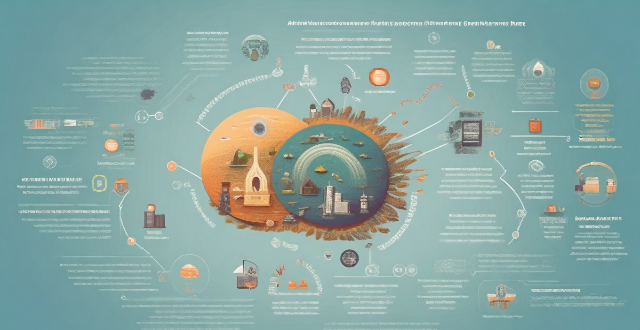Education and awareness are crucial for promoting citizen action on climate change. They help individuals understand the science, develop skills, foster critical thinking, raise consciousness, mobilize public support, and promote behavioral change. Strategies for enhancing education and awareness include integrating climate change into curricula, community workshops, media campaigns, and partnerships with NGOs and corporations. Investing in education and awareness is essential for creating a more resilient and equitable future.

The Role of Education and Awareness in Promoting Citizen Action on Climate Change
Introduction
Climate change is one of the most pressing global issues that requires immediate attention and action. Education and awareness play a crucial role in promoting citizen action on climate change by providing individuals with the necessary knowledge, skills, and motivation to take proactive steps towards reducing their carbon footprint and advocating for sustainable practices.
The Importance of Education
*Understanding the Science*
Education helps individuals understand the science behind climate change, including its causes, effects, and potential solutions. This understanding is essential for developing a sense of urgency and recognizing the need for collective action.
*Skill Development*
Through education, individuals can acquire skills related to energy conservation, waste reduction, and sustainable living. These skills enable them to make informed decisions and take practical steps towards reducing their environmental impact.
*Critical Thinking*
Education fosters critical thinking, allowing individuals to evaluate information, identify misconceptions, and make well-informed decisions about climate change mitigation and adaptation strategies.
The Power of Awareness
*Raising Consciousness*
Awareness campaigns can raise public consciousness about the severity of climate change and its implications for future generations. By highlighting the consequences of inaction, these campaigns can inspire individuals to take responsibility for their actions and contribute to positive change.
*Mobilizing Public Support*
Increased awareness can lead to widespread public support for policies and initiatives aimed at addressing climate change. This support is vital for driving political action and securing funding for research and implementation of sustainable solutions.
*Promoting Behavioral Change*
Awareness-raising efforts can encourage behavioral changes among citizens, such as adopting eco-friendly habits, supporting green businesses, and participating in community clean-up events. These small-scale actions can collectively have a significant impact on reducing greenhouse gas emissions and conserving natural resources.
Strategies for Enhancing Education and Awareness
*Integrating Climate Change into Curricula*
Incorporating climate change education into school curricula from an early age can ensure that future generations are equipped with the knowledge and skills needed to tackle this issue effectively.
*Community Workshops and Training Sessions*
Organizing workshops and training sessions in local communities can provide adults with opportunities to learn about climate change, share ideas, and engage in collaborative problem-solving.
*Media Campaigns and Social Media Influence*
Utilizing various media platforms, including traditional media outlets and social media channels, can help disseminate accurate information about climate change and promote pro-environmental messages to a broad audience.
*Partnerships with Non-Governmental Organizations (NGOs) and Corporations*
Collaborating with NGOs and corporations can amplify educational efforts and create synergies between different sectors working towards climate action goals.
Conclusion
Education and awareness are fundamental components of any successful strategy aimed at promoting citizen action on climate change. By empowering individuals with knowledge, skills, and motivation, we can foster a culture of sustainability that extends beyond individual actions to influence policy decisions, business practices, and societal norms. As we face the challenges posed by climate change, investing in education and awareness is not only wise but also essential for creating a more resilient and equitable future for all.